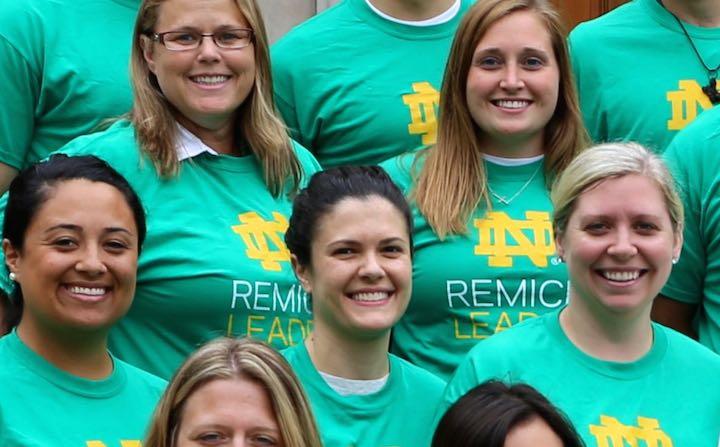"Striving to be a good Catholic school leader is an all-consuming endeavor—it's on my mind when I wake up in the morning and go to sleep at night," said Stephanie Becker, who recently graduated from ACE's Mary Ann Remick Leadership Program as part of its 12th cohort.
Becker is the academic dean at Mt. Carmel-Holy Rosary Catholic school in New York. One of six Catholic elementary schools in the innovative Partnership for Inner-City Education, MCHR's mission is to provide a "beacon of hope" for children from the under-resourced neighborhoods of East Harlem.
To keep her own beacon of hope shining, Becker relies on her faith. She was originally formed and inspired by her own experiences in a Catholic high school.
"I always felt a sense of encouragement and support from my teachers that was clearly inspired and fostered through their personal relationship with Christ," Becker said. "Their belief that my unique personhood was something to be cherished inspired me to be my best self each and every day.
"It was perfectly fitting to find my home as a ‘new teacher' post-graduation in a Catholic school. For me, it was never ‘if' I would work in a Catholic school, it was always a matter of ‘where.'"
After six years teaching in Manhattan, Becker was invited to her current position at MCHR. While Becker was no doubt a positive influence on her community, she desired to be more effective.
"I had the willingness, drive and potential to be the driver of change in my school and diocese, I just needed the right program to help me get there."
"Deep down," she said, "I felt there was more I could be doing for my school and the students I serve; I had the willingness, drive and potential to be the driver of change in my school and diocese, I just needed the right program to help me get there."
Becker was already a leader when she entered the Remick Leadership Program. What she sought was the opportunity to learn and grow from more experienced, transformational leaders—leaders whose zeal could turn around struggling schools and inspire hundreds of people to "own their talents and do the best work of their lives."
Suzanne Kaszynski, the principal of MCHR, was the beacon of hope that drew Becker toward comprehensive, faith-based leadership, like a moth to a flame. Kaszynski, Becker explained, "with her infectious positivity and unbreakable spirit, galvanized supporters from near and far to save this East Harlem gem that was providing a first-class Catholic education for an underserved population, in a neglected corner of the city."
What Becker wanted was not only to attain that character of leadership exemplified by Kaszynki's successful results, but also her humility and joy.
"She so perfectly articulates what a comprehensive education, rooted both in faith and the arts, can do for children," Becker said. "Such a powerful impact is the fruit of love, not ambition or pride."
In order to improve the academic environment at MCHR, Becker said, it was necessary to "intensify our sense of faith and celebrate our Catholic identity." Consequently, she was unsatisfied with many of the leadership programs available in New York City. Becker needed to find a group of peers and mentors who "kept spiritual formation and growth a priority."
The Remick Leadership Program provided a structure within which Becker could broaden her vision and imagine a greater future for her school, but it also taught her new practical skills. It armed her with a strong network of dozens of leader-peers who "became something more than colleagues or friends, they became a second family." It held up examples of schools "where Gospel values are lived, community is celebrated, and excellence – not perfection – is paramount." Most importantly, it reaffirmed Becker's hope in Catholic education.
 Alliance for Catholic Education
Alliance for Catholic Education
